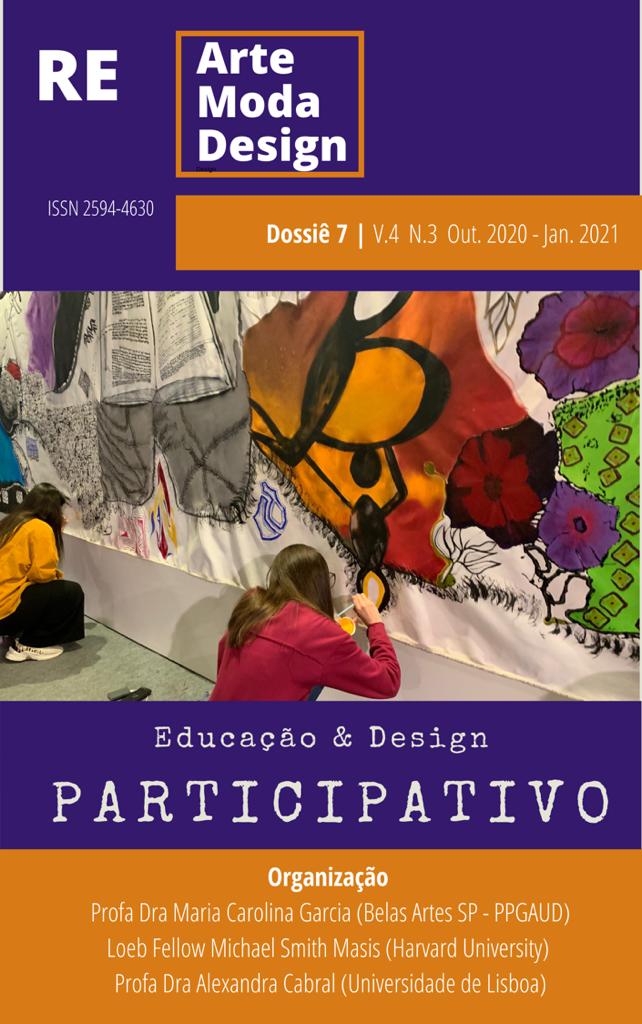Participative Design as a Work Methodology in Formal Education and Daily Practices
DOI:
https://doi.org/10.5965/25944630432020211Abstract
In the present work, we present the compilation of an interview conducted by a professor
of Higher Education (UFRPE) to another co-worker (Unisinos), the interviewee who reflects
and discusses issues related to Participatory Design (PD). The path of conversation traced by
the professionals covers not only the educational scope but that of everyday life, that is, it
also deals with how Participatory Design can be considered pragmatically for the development
and / or monitoring of practical activities concerning and arising from other dimensions
of everyday life of the social subject. In the course of the construction of thought proposed,
terms such as curiosity, proactivity, independence, autonomy, and collectivity were quite recurrent
to rethink pedagogical and professional practices that are not restricted to Design, as
they are necessary for any activities that intend that everyone who is in them involved participating. During the interview, it was verified how the adoption of the participatory design
concepts presents itself as a challenging practice, both in the educational field and in the
perspective of its performance in other fields of knowledge. Finally, it should be noted that,
about the technical aspects of the interview, it was conducted through the Jitsi Meet video
conference platform, and lasted approximately 40 minutes, recorded via an audio application,
available for Android system - and, subsequently, it was transcribed and organized according
to the norms of the language, having its approval for publication by the interviewed teacher.
Downloads
Downloads
Published
Versions
- 2020-10-01 (2)
- 2020-10-02 (1)
How to Cite
Issue
Section
License
Copyright (c) 2020 Jaqueline Ferreira Holanda de Melo

This work is licensed under a Creative Commons Attribution 4.0 International License.
- Authors retain copyright and grant the journal the right of first publication, with work simultaneously licensed under the Creative Commons Attribution 4.0 International License, which allows for:
1. Share — copy and redistribute the material in any medium or format for any purpose, even commercially.
2. Adapt — remix, transform, and build upon the material for any purpose, even commercially.
The licensor cannot revoke these freedoms as long as you follow the license terms.Under the following terms:
1. Attribution — You must give appropriate credit, provide a link to the license, and indicate if changes were made. You may do so in any reasonable manner, but not in any way that suggests the licensor endorses you or your use.
2. No additional restrictions — You may not apply legal terms or technological measures that legally restrict others from doing anything the license permits. -
Plagiarism, in all its forms, constitutes unethical publication behavior and is unacceptable. This magazine uses iThenticate similarity control software.






